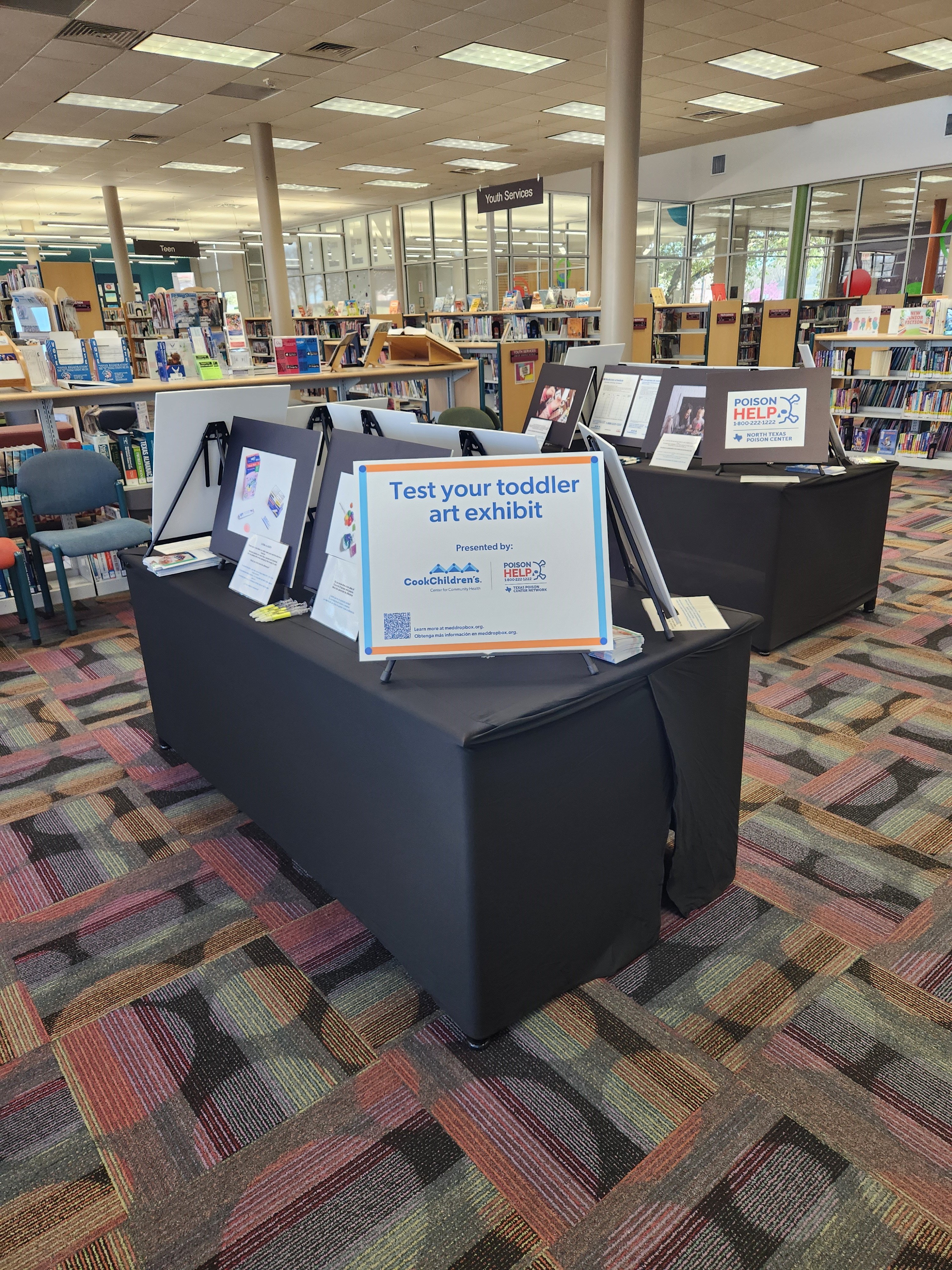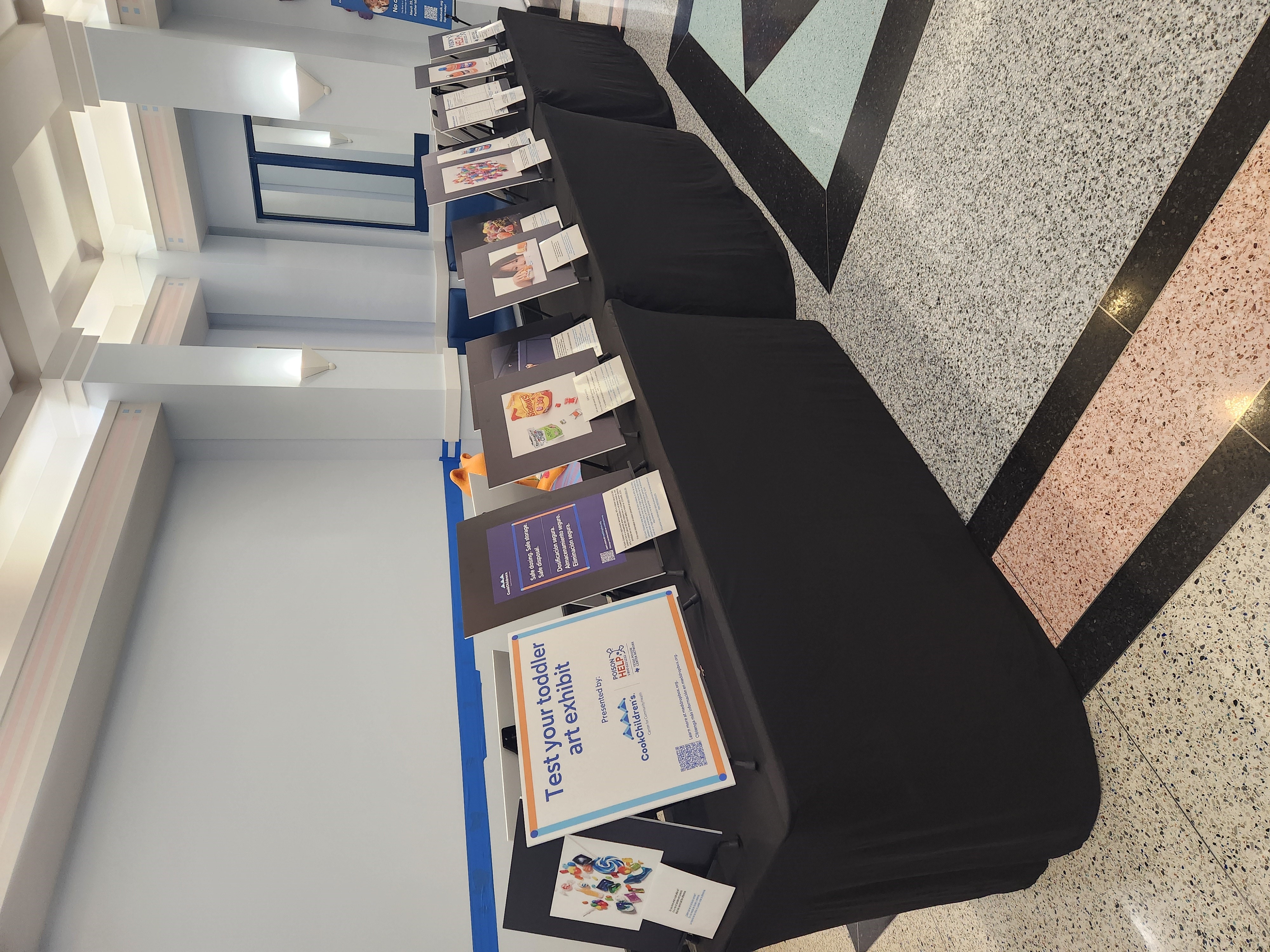Poison Prevention

In Cook Children’s eight-county service area, 1 in 2 children (about 570,400) live in homes where medications are not always locked up and 4 in 7 children (about 618,500) where cleaning products are not always stored in a locked area.1 More than 800 children are treated at Cook Children’s every year due to an accidental poisoning and 65% of those poisonings are medication related.2 Safe storage of medications and household poisons is important in preventing an accident.
Medications come in all different shapes and sizes, often look like candy, and are made to taste good. They can even be liquid and gummies, over the counter, prescribed, or even “fake.” It is vitally important to talk to kids about medication safety, which includes use, storage, and disposal. They should only take medicines prescribed by a physician, given by a nurse, or trusted adult. Counterfeit medications may be laced with dangerous substances that can be life threatening and not worth the risk.
Prevention tips
- Follow dosing directions listed on the medication by using the appropriate measuring items such as a medicine cup or oral syringe.
- Double dosing is NOT twice as effective, and in many instances can cause internal damage.
- Adult medications may be too strong for children and should not be given in half doses. Only give medicine to your child that is intended for children.
Print the medication schedule to keep the right dosage for your family.
- Many people leave medications on bathroom and kitchen counters as well as bedroom nightstand as a visual reminder to take them. Avoid unintentional injury and store medication up high, locked and out of reach.
- Hang purses and personal bags up high, so children are unable to reach prescriptions, vitamins, or other routinely used medications.
- Remember, when visiting friends and family, it is ok to have an open discussion about safe storage.
In need of a place to safely store your medication?
Contact us for a medication lock box.
- The best disposal option is to find a drug take back location which may be found in retail, hospital, pharmacies, and/or law enforcement facilities.
- Removing any unused or expired medication in the home can reduce the risk of access.
Household poisonings
Safe-proof your home in advance and avoid potential danger zones. Take a tour of each room, inside and out, and look for the dangers we've outlined below. Consider what a child can see and reach at their height. The little time it takes to do this can help prevent accidental poisonings.
For young children who are not yet reading and enjoy exploring, poisonous products may resemble food, drinks, and candy.
- Clothes detergents/pods are often swallowed because they are colorful and soft to the touch. Be sure to keep containers sealed and out of reach.
- Nicotine and vaping liquids tend to have enticing flavors and smells that are attractive to children. Hang purses and personal bags up high, so children are unable to grab cigarettes, vaping liquids, and other routinely used products.
- Floor cleaners and other cleaning liquids often look and smell like fruit juices and other common drinks. Designate specific cabinets to store cleaning supplies that can be locked and out of a child's reach.
- Some plants may be poisonous to young, exploring children, as well as to animals. Visit https://www.poison.org/articles/plant for a list of poisonous plants.
- Lawn chemicals, pesticides, and car cleaners should be kept in their original containers with labels so they are not mistaken for common drinks.
- Toys that are meant for kids often have hidden dangers, such as button batteries or small items that are choking hazards. Be sure to read labels, follow manufacturer's age recommendations and ensure any battery covers are kept intact.
Art exhibits
Fentanyl Awareness Art Exhibit in partnership with Challenge of Tarrant County SOAR and Stay on Track coalition
 Display at Alvarado High School
Display at Alvarado High School
 Display at Denton North Branch Library
Display at Denton North Branch Library
Test your Toddler Art Exhibit in partnership with the North Texas Poison Center
 Display at Denton South Branch Library
Display at Denton South Branch Library
 Display at Dodson clinics at Cook Childrens Medical Center-Fort Worth
Display at Dodson clinics at Cook Childrens Medical Center-Fort Worth
Medication drop box
The best disposal option is to find a drug take back location which may be found in retail, hospital, pharmacies, and/or law enforcement facilities.
Accepted drop disposal items |
Not accepted drop disposal items |
Prescription / over-the-counter medications |
Oxygen tanks/ Nebulizers |
Veterinary (animal) medications |
Needles/ Sharps/ Thermometers / IV bags |
Vitamins/ minerals/ samples |
Any equipment or syringes to administer medications |
Find a drop-box location here, Drop-box location search
For at home disposal, many Fort Worth Fire Department locations offer free medication take back envelopes that families can mail in expired or unused medications.
Contact us about our program
For questions or information on poison prevention, contact injury.prevention@cookchildrens.org.
References
1Community Health Needs Assessment Report. (2024). Cook Children’s Health Care System. Fort Worth, Texas; or CookChildren’s CHNA 2024 at www.cookchildrens.org/chna (accessed month).
2Cook Children’s Health Care System, Health Care Analytics. 2024. Accessed September 2024.
Access free resources
The Center for Community Health is committed to providing free education and access to our data.